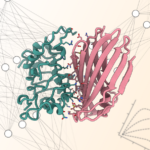Biotech companies that use gene editing tools can face intellectual property (IP) challenges during commercialization. That’s the view of Austin Hallgren, strategic account manager for bioproduction at Revvity, who spoke at the recent Bioprocessing Summit in Boston.
Popular gene editing tools, such as CRISPR-Cas9, which are often used for creating a new host cell line for producing commercial biotherapeutics, require a specific license, and the intellectual property behind it is both complex and expensive to navigate, Hallgren says.
“Large pharma companies are aware of this,” explains Hallgren. “It’s more medium-sized or smaller biotech companies who might have a specific challenge expressing a protein to get into clinical trials.”
These companies may want to, for example, knock out a gene creating a problematic host cell protein. If they use CRISPR-Cas9, their internal legal team will often question, later in development, whether they have appropriate licenses to do this, he explains.
“There’s a complex IP landscape around CRISPR-Cas9, for example. While licenses are available, they can be expensive, adding an additional cost, and there’s a question around the patent holder, life of patents, and so on,” continues Hallgren. “Small companies therefore need to figure out who to go to and how to have an IP-free cell line.”
Hallgren says his company offers gene editing technologies under appropriate licenses for research or commercial purposes, which allow freedom to operate for smaller companies in addition to other benefits.
His Bioprocessing Summit talk covered other regulatory aspects of gene editing technologies, including how to maintain full traceability for cell lines with regulators worldwide. He also discussed how next-generation molecules might require glycoengineering to create patterns of glycan expression that give molecules novel therapeutic benefits.


